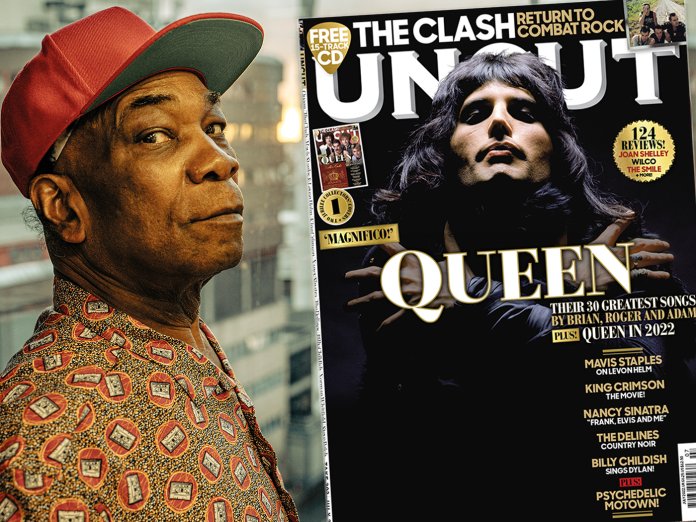Pioneering producer, songwriter, dubmaster and now MBE, Dennis Bovell has been busy as ever as he heads towards his eighth decade. In the last year alone, there have been ongoing dub reimaginings for the likes of Animal Collective and The Smile, various archival and new Bandcamp releases, and Y In Dub, a new version of The Pop Group’s seminal Bovell-produced debut.
“I got to get back into those tracks and marvel at the sounds I’d put down on the tape,” he explains of the latter. “They’re mad about dubbing, Mark Stewart especially, so they were going crazy!”
His latest project is a career-spanning anthology, The Dubmaster, so Bovell’s agreed to take Uncut through nine of the pivotal albums he’s helped create, from Matumbi’s reggae classics through to production work for The Pop Group, The Slits and Fela Kuti, and right on to his latterday dub work.
“I have no problem calling the shots,” he says of his firm approach to making music. “You need that iron fist. If I didn’t like something, I let it be known. And if I thought it could be better done some other way, I let that be known as well!”
“MATUMBI”
Seven Seals
(1978, Harvest)
The debut album by the London reggae group, featuring Bovell on guitar
Our first studio session was in October 1971, so last year marked 50 years since the first Matumbi recording. When I ran the band like a totalitarian regime, it seemed to work a bit better, but then everyone went, “Urgh, it’s a bit totalitarian, yeah?” So I went, “All right, we’re all equal, everyone’s got an equal say.”
I think that was the beginning of it falling apart. We did this at Gooseberry Studios in Soho, then the band had a mutiny – they didn’t want me to mix the record, saying that I was gonna make the band sound like all the other bands I’d mixed and engineered. I thought, “What’s wrong with that, there’s success there?” But they said, “No, we want a white guy to mix it.” I go, “What, is that the only criteria, he has to be white?” The chief engineer at Gooseberry, Dave Hunt, had just taken a new job at Berry Street on my recommendation. They suggested Dave to mix the album, and because I’d suggested him as engineer there, I couldn’t say no. But I think it was a very good mix, except for on one song he put an echo on my rhythm guitar that seemed to me to be out of time. I complained about it, but the band said “We liked it.” The album did very well, though – it sold more in Japan than any other territory.
“BLACKBEARD”
Strictly Dub Wize
(1978, Tempus)
Bovell’s first solo album, a masterful psychedelic dub haze
Some people in Matumbi took offence to my solo career – they were like, “You’re in competition with the band.” There was one instance where my record was at No 1 in a chart and the band’s record was at No 7 or something. So I stopped singing and started making dub records – “See, I’m not in competition with the band anymore. I’m not singing, I’m just doing dubs.” That’s why the album’s called Strictly Dub Wize – it was a statement to the band. I got out of that one! This was all done at Gooseberry. We had a Revox tape machine that was doctored, so it could facilitate vari-speed. That was the main delay line, because then we could vary it to the tempo of the tune.
It worked fantastically, because then we could have any speed for the delays. We had two Roland delays and an AKG BX20 reverb, which was quite famed, and also an EMT reverb plate: lots of outboard gear, because that’s what we did there, a lot of dub work, so we had to have machines. I couldn’t really afford session fees for other musicians to come on board and play what I told them to play – and 10 to one, I’m gonna have to correct them afterwards. So I thought, “If I’m able to do it, I might as well.” I needed a drummer though, mainly because the control room was some distance from the drum booth, so it was quite a laborious process to play it and then come back to the control room to EQ it.


